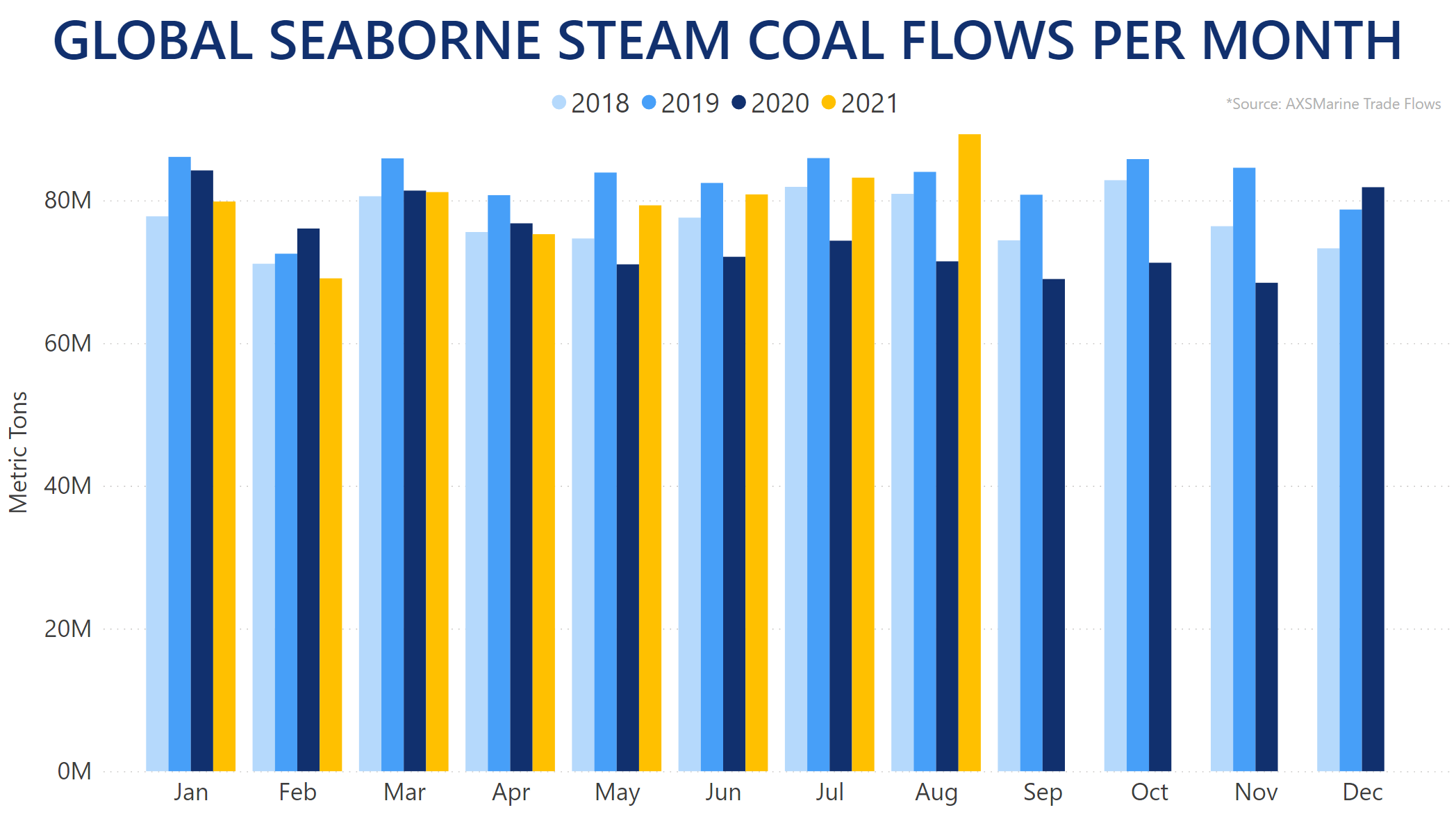
The availability of high-quality Russian coal on the global market, including thermal material, PCI coal and anthracite, significantly decreased in January-May 2024. The supply deficit from Russia is expected to worsen further from June 2024 on the back of recent sanctions against Sibanthracite, one of the largest producers of metallurgical coal in Russia and the leading producer of high-quality anthracite in the world.
According to preliminary estimates, the sanctions will result in Sibanthracite’s export shipments dropping to 5.8 mio t in Jan-May 2024 (-3.9 mio t or -40% vs. Jan-May 2023).
The reduction of Russian export supplies in 2024 due to sanctions, given the volumes of Sibanthracite, SUEK and Mechel, will amount to about 50 mio t. If the sanctions regime remains in place, almost 65 mio t of coal will not get to the market in 2025.
Thus, 30% of Russian coal exports have fallen under US sanctions since the beginning of 2024, which leads to an imbalance in global supply and demand for high-quality coal, both thermal and metallurgical, including PCI and anthracite. The lost volumes of high-quality Russian coal and metallurgical material will not be replaced in the market, as production from Indonesia, South Africa and Colombia is not comparable in quality, while there is limited capacity to boost production in Australia. Therefore, this may push up key indices, calculated on the basis of 6,000 kcal/kg material, as well as prices for coking coal, PCI and anthracite.
The limited throughput capacity of the BAM and Trans-Siberian Railway hinders the growth of transshipment volumes in Far Eastern ports, where logistics is most favorable for shipments to Asia-Pacific markets due to lower freight rates. The mix of current low prices with high rail transportation costs and handling rates in ports makes export supplies unprofitable, forcing Russian coal companies to suspend export deliveries, reduce production and, in some cases, shut down mining facilities and curtail projects at new coal deposits.
Loss-making exports from Baltic and Black Sea ports have already caused a significant decrease in coal shipments on these routes and in the future may lead to the suspension of thermal coal supplies via the North-West and South of Russia. The volumes of coal transshipment in OTEKO’s port of Taman, the largest Russian terminal in the South of the country, are still falling and in Jan-May 2024 its export supplies are estimated to slash to 2.4 mio t (-9.1 mio t or -79.1% vs. Jan-May 2023).
Moreover, scheduled summer maintenance and modernization works on the railway network of Russian Railways (RZD) will also add restrictions to the already reduced volume of Russian coal exports.
Source: CAA



